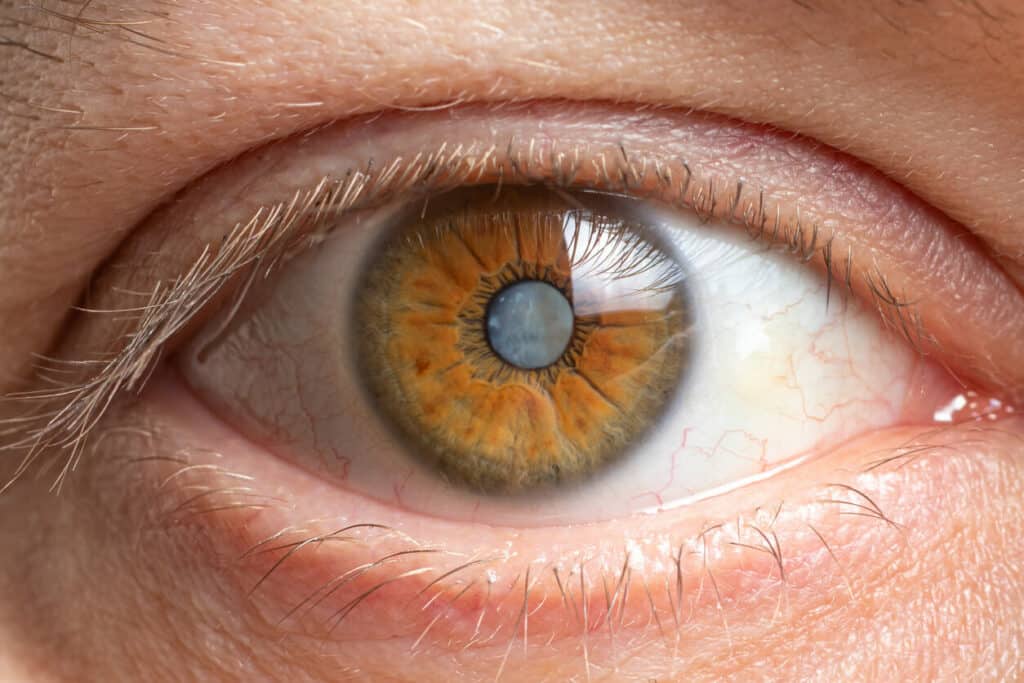
As most people age, cataracts become a common eye problem that seniors might consider a natural part of aging. If you have cataracts, you may wonder if cataract surgery is safe, especially if you are an older adult. You don’t have to worry, as this type of eye surgery is considered safe for people of all ages.
Cataract is one of America’s leading causes of blindness. The good news is that, unlike other causes of blindness like glaucoma, or diabetic retinopathy, you can effectively treat cataracts through surgery with little to no risk.
Amy’s Eden is putting out this post to help seniors having cataracts understand this eye condition, what to look out for, preventive measures, and how to undertake treatment. We believe seniors should live their golden years comfortably without worrying about impending blindness.
Formation of Cataracts
Cataracts form when clouding is inside the lens of one or both of your eyes. This clouding results when the protein clumps together on your eye’s lens. This protein hinders light from passing through the eye lens easily.
When the lens is clouded, it makes it difficult for the eye to focus the light on the retina. With insufficient light reaching your retina, your vision may become blurry or hazy.
Sometimes these protein clumps may grow bigger, making it impossible to see. Additionally, these protein clumps on your eyes may cause your lens to turn color to either yellow or brown, changing how you see some colors.
Common Cataract Signs and Symptoms To Look Out For
Some of the most common signs and symptoms indicating the possibility of cataracts in your eyes include:
- Light sensitivity, especially to bright headlight or sunlight
- Double vision
- Poor night visibility
- Blurred, foggy, cloudy, or filmy vision
- Halo effect around light
- Seeing faded colors
- Finding it difficult to drive and read
- Need for bright light to read
- Frequent changes in the prescription for your contacts or glasses.

It would be best if you did not ignore these signs and symptoms as they may affect the quality of your life. Untreated cataracts eventually make it difficult to see from the affected eye and can lead to blindness.
Types of Cataracts
One thing to note is that all cataracts involve the clouding of the eye lenses. However, the reason for this clouding may vary, resulting in different kinds of cataracts.
The National Eye Institute (NEI) recognizes the following types of cataracts:
- Traumatic
- Congenital
- Secondary
- Radiation
- Age-related cataract.
How Will The Ophthalmologist Check For Cataracts?
To start the cataract diagnosis, your doctor will widen your pupil by dilating the eye. Widening the pupil makes it easy for the doctor to search for cataracts.
During this thorough visual examination, your doctor will;
- Analyze the size of the cataract.
- Ask about your medical history
- Enquire if you require help performing your daily task due to difficulty seeing.
If the ophthalmologist discovers a large cataract in your eyes, they may advise you to begin treatment immediately or return later.
The purpose of this follow-up visit is to monitor the development of the cataracts.
A visual exam for cataracts is not a painful process. However, it can be uncomfortable, and the effect may take several hours before wearing off.
Simple Ways To Prevent Cataracts
There are some effortless ways to prevent cataracts from developing. Take some of the following steps to help protect your eyes from cataract formation:
- Wear protective gear while participating in certain sports or while using power tools.
- Wear a wide-brimmed hat or sunglasses to protect your eyes from the sun’s glare.
- Eat a healthy diet that includes a lot of colorful fruits and vegetables.
- Regular visits to the doctor and eye exams.
- Quit smoking
- Address any health problems like diabetes.

Treatment for Cataracts
Surgery is the only option for treating severe cataracts and can help you regain your vision. Cataract surgery can help you live a quality life and it’s safe and effective.
When cataracts make it difficult to carry out daily tasks like reading, watching TV, or driving at night, most ophthalmologists will advise surgery as a therapy option.
Alternatively, suppose cataracts obstruct or interfere with other eye treatments like those for diabetic retinopathy or macular degeneration. In that case, your doctor may advise surgery to remove them even if they do not affect your vision.
What Happens During Cataract Removal Surgery?

There are two types of cataract surgery;
- Phacoemulsification cataract surgery
- Extracapsular cataract surgery
During cataract surgery, your ophthalmologist will put you under local anesthesia or apply topical preparation.
Your ophthalmologist will remove the clouded lens and replace it with an artificial intraocular lens (IOL). This artificial lens will stay in your eye permanently.
Having an IOL will correct refractive errors, reducing reliance on contact lenses and glasses. It can also help to restore normal vision.
If you have cataracts in both eyes, you can not have the procedure on them. Your doctor will operate on one eye first and the other later. Cataract removal surgery is an outpatient procedure that takes less than 30 minutes.
After the procedure, your doctor will cover your eye with a patch. You will then rest for a bit at the facility to allow your medical team to check for any problems, like bleeding.
Don’t worry if you feel discomfort; it should only last a day or two. Your doctor will give you eye drops to apply for a few days.
Is Cataract Surgery Safe For Older Adults?
Surgery is typically dangerous for most seniors over 65. However, when it comes to cataract surgery, things are different. There is no upper age limit for having cataract surgery; you can have it even in your 90s!
Due to the following reasons, cataract surgery for seniors is typically a safe procedure:
- Your doctor will administer topical anesthetic or put you under local anesthesia, commonly with eye drops, but you won’t be under general anesthesia.
- Cataract surgery is a same-day, minimally invasive technique.
- Your eye and visual system will be blocked off so that the condition of other bodily components won’t hamper the process.
- Before surgery, your doctor won’t need to stop your anticoagulant medication.
Risks Associated with Cataract Surgery
Although undertaking cataract surgery is a safe procedure, you should be aware that bleeding and infection are always risks.
Cataract surgery will also increase your chances of having a detached retina, which could increase your chances of experiencing vision loss. However, the benefits of the surgery outweigh the risks.
How Do You Get Ready for a Cataract Operation?
After deciding to have cataract surgery, you must be well-prepared. The best chance for you to get ready for surgery is at home.
Before having surgery, you must make the following preparations:
Eye protection
Keep your eyes germ and infection free. Eye drops should be applied according to your doctor’s recommendations. Always remember to space out your eye drops properly.
To prevent infections, remove contact lenses from the affected eye before surgery.
Relax
Relaxing before surgery ensures a stress-free procedure and reduces anxiety.
Rest
Before surgery, get enough sleep and try not to strain your eyes. Avoid letting UV rays into your eyes if possible. If you must go outside in the sun, consider using UV-protective eyewear.
Eat a balanced diet
Ensure you eat a balanced meal full of all the nutrients. Not sure what to eat? You can consult with a nutritionist or ask your doctor.
Medications
Take your medications as prescribed. If your doctor advises you to stop taking certain medications, do so.
General hygiene
When administering eye drops, follow the general hygiene instructions. You should thoroughly wash your hands before applying eye drops.
Arrange for transportation to and from the hospital
Despite being an outpatient procedure, you should arrange transportation to and from the hospital. You may feel uneasy after the procedure; the local anesthetic could make you light-sensitive.
Follow your doctor’s instructions
Typically, your doctor will advise you to avoid solid foods for 3 hours and liquids for 2 hours before surgery; ensure you abide by these instructions.
Don’t drink or smoke
You should abstain from these behaviors before and after surgery, especially if you smoke or use alcohol to reduce anxiety.
Documentation
Bring all your medical records and reports for your surgery.
Avoid applying eye makeup
On the day of the procedure, you shouldn’t wear makeup on your eyes.
Make an early head start
Getting an early start will enable you to be at the hospital on time and give you plenty of time to unwind before your procedure.
If you have any allergies, let your doctor know beforehand
Before administering local anesthesia, it can be helpful to let the healthcare provider know if you have any allergies, especially to any medications.
Cataract Surgery Side Effects
Following surgery, you might experience a few of the following side effects, which should go away in a day or two:
- Discomfort in the surgically treated eye
- Nausea, vomiting, clouded vision, or drowsiness
- Itching in the surgically treated eye
- In the affected eye, irritation, a gritty feeling, or a sensation of dryness
- Sensitivity to light
- Swelling surrounding the affected eye
- Halo effect, especially around bright light

What To Do After Cataract Removal Surgery
After you arrive from the hospital, eat, and rest. The day after surgery, when the eye patch comes off, you should see your doctor so they may examine your eye for any problems.
During recovery, kindly refrain from touching, rubbing your eyes, lifting large objects, or bending.
If you experience pressure, excruciating pain, or a headache when recovering at home, call your doctor immediately.
You should also be alert for the following symptoms and contact your ophthalmologist:
- If the redness surrounding your eye does not go away after a couple of days,
- An abrupt drop in visibility
- Discharge coming from the injured eye
- Nausea and vomiting
- Fever
- If you notice an increase in floaters or flashing lights
- Chronic or excruciating pain
After the surgery, you can continue to live a quality life similar to the one you had before the cataract.
Take away
Even though having surgery might make you nervous, it’s lovely to think your life will return to how it was before the cataract. Avoiding unnecessary worry is one way to get over your fears.
One of the most frequent surgical procedures in the United States is cataract surgery. You may know someone who has successfully undergone the treatment. Talk to them about the surgery, and you may receive assurance from them.
If you need a caregiver to assist you with personal care, and household maintenance before and after your surgery, you can find a caregiver at Amy’s Eden. Our caregivers are trained to provide exceptional care and will support you on your journey to recovery.




